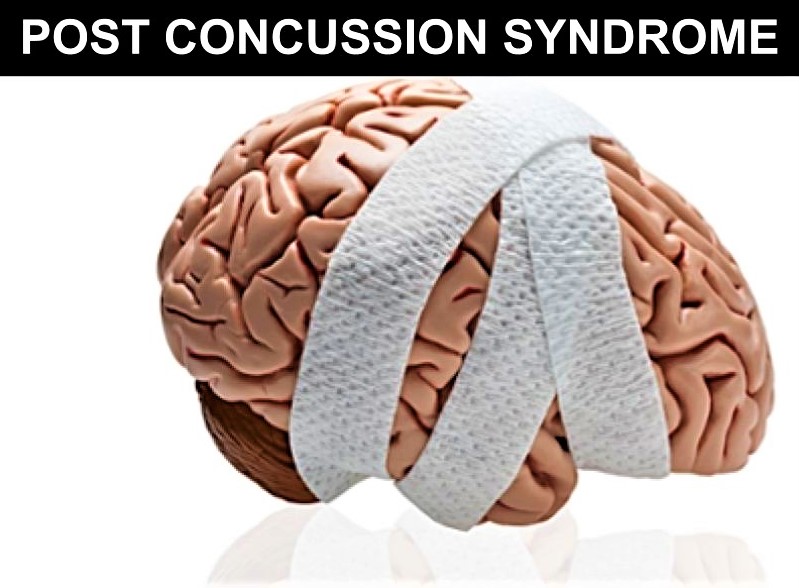
Post Concussion syndrome (PCS) is a common sequelae of traumatic brain injury (TBI) and describes a symptom complex that includes headache and cognitive impairment. PCS can occur after a head injury or the brain undergoing an acceleration/deceleration movement without direct external trauma to the head.
The most common complaints in PCS are headaches, dizziness, fatigue, irritability, anxiety, insomnia, loss of concentration and memory, and noise sensitivity. Over 50 percent of patients report personality change to include increased irritability, anxiety, and depression. Patients may find themselves hypersensitive or intolerant to noise, emotional excitement, and crowds. Family members may report that the patient seems more abrupt, argumentative, stubborn, opinionated, or suspicious. Patients also report impaired memory and concentration; these may be corroborated by objective deficits on neuropsychological testing. In typical cases, these are most prominent immediately after the injury and resolve over the next weeks and months. A significant number of patients (15 to 20 percent) will develop symptoms meeting criteria for psychiatric disease. These include acute stress and posttraumatic stress disorder (PTSD) as well as anxiety, panic disorder, and depression.
The use of testing needs to be individualized for each patient. Referrals to an ophthalmologist or otorhinolaryngologist should be made for patients with persistent complaints of visual symptoms or vertigo. Psychiatric evaluation should be considered for patients with prominent psychiatric symptoms. Further evaluation like Electroencephalography (EEG) and neuroimaging may be indicated, however not always warranted.
The Manhattan Center for Headache and Neurology has competent providers to further evaluate and facilitate acute and extended management.
By: Jordan Shankle, PA
